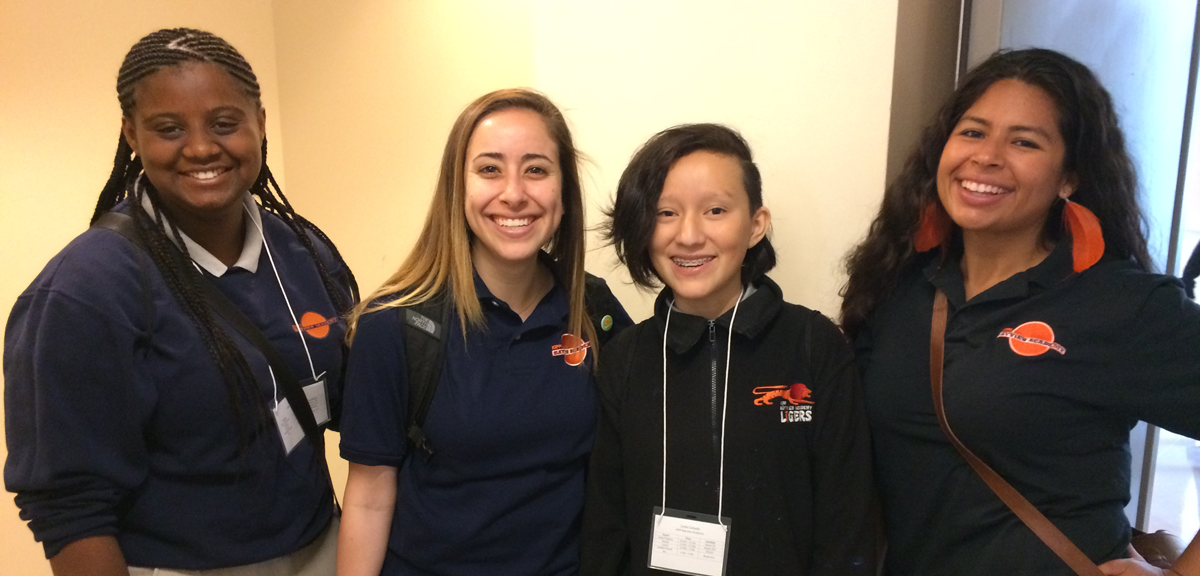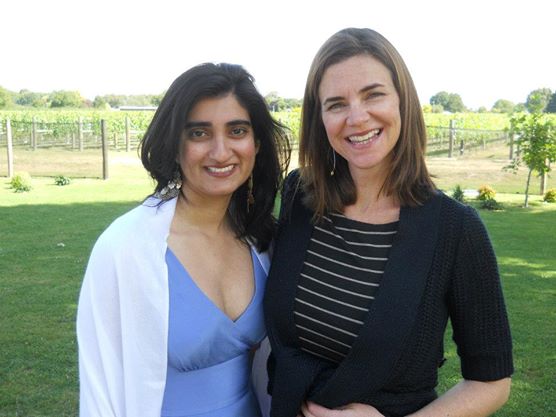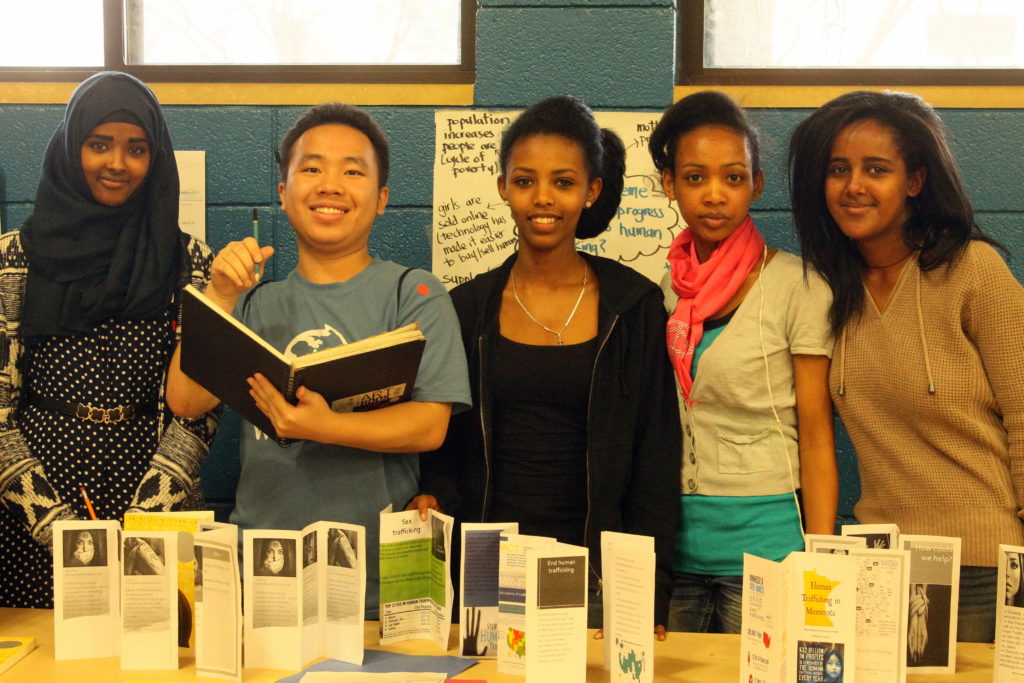
Sixteen years ago, in the wake of September 11 and the resulting xenophobic backlash, two friends came together around an idea: that in an increasingly globally connected society, education plays a critical role in ensuring students develop the skills and dispositions for success in a changing world. Together these friends, Dana Mortenson and Madiha Murshed, created a nonprofit organization called World Savvy, which works with K-12 teachers and education leaders across the U.S. to reimagine education for a more globally connected world. In the process, they began preparing a new generation of students as changemakers.

World Savvy founders Madiha Murshed and Dana Mortenson.
Today, World Savvy has helped more than 580,000 U.S. students build skills such as thinking critically and creatively, exhibiting empathy, honoring different perspectives, and working collaboratively, all with the goal of ensuring they’re prepared to thrive in more diverse and globally connected communities and workplaces.
CEO Dana Mortenson answers questions about why global competence education is increasingly important, and how MSP residents can get involved.
What is global competence?
Dana Mortenson: At its most basic, global competence is the ability to understand and respond to issues of global significance. For example, according to the United Nations, by 2050 we’ll have 34% more people on the planet than we do today. What’s our plan, not just as a country but working in partnership with countries around the world, to ensure everyone will have access to food and clean water? Those are the kinds of questions and challenges globally competent students are prepared to think through critically and from multiple perspectives, and begin to address.
Why is global competence important?
Dana: Because the world and our country are changing quickly, and rather than simply locking the door and pretending it’s not happening, we need think ahead and ensure our students—the next generation—are prepared. By 2042, the U.S. Census Bureau predicts that no single ethnic or racial group will comprise a majority of the U.S. population. This is already true for the population under 18. No other country has experienced such rapid racial and ethnic change in history, and this change is not slowing, but is accelerating. When we founded World Savvy, we thought , how will we, as a country, educate and prepare students to live and work together in more diverse communities and workplaces? Today, it’s even more critical that we ask ourselves how we’re leveraging our incredible diversity as an asset.
What should the future of learning look like?
Dana: Recent demographic and technological shifts have created incredible opportunities in education to redesign and rethink student learning. Because information is only as far as the closest internet-enabled device, memorizing facts is less important than understanding how to think critically and from multiple perspectives. Teachers in globally competent classrooms serve as discussion facilitators and guides, rather than lecturers and deliverers of content, and help students embrace change and comfort with ambiguity. Over the past few years, at World Savvy, we’ve worked closely with 9th grade world history teachers in the St. Paul Public Schools, whose students speak 126 languages, to leverage that diversity as an asset and help students feel more connected to what they’re learning. We’ve done that by helping create materials that cover the required content, but create spaces for students to link their own experiences to the topic, and encourage learners to consider the experience of those impacted from multiple perspectives.
How is World Savvy building a generation of changemakers?
Dana: We’re helping students understand their ability to impact the world around them through project-based learning and the deep examination of critical social, environmental, and other global and community issues. We are also building a more empathetic, inclusive environment for diverse learners—ensuring students can work, live, and learn productively and peacefully with peers from any background. In one Minneapolis Public Schools high school classroom, comprised primarily of English Language Learners, rather than simply study English, the students read the young adult book “Sold” about the issue of human trafficking. They discovered, through their own subsequent research, that the FBI had identified Minnesota as one of 13 states with a high incidence of child prostitution. To combat the problem, they created brochures to educate readers about the problem and resources available to help those who have been impacted, and they passed them out at sporting events. Their teachers shared that the students’ level of engagement and their rate of English language acquisition were significantly higher during this real-world learning. In the process, the students learned that they had the power to affect change in their community.

Minneapolis Public School students share their human trafficking education campaign.
How can members of the Pollen community get involved?
Dana: On Friday, May 12 at the University of St. Thomas, World Savvy will host its annual Festival during which students from around the Twin Cities will present their ideas for addressing social issues here in our community and around the world. They’ll share proposed solutions to issues from hunger and food waste to homelessness to teen mental health to immigration. These are topics they’ve selected, studied how they’re addressed in different countries, then developed their own plans to address the issues here in MSP or on a broader scale.
We’re looking for Festival volunteers to come and work with the students during the day as facilitators for groups examining new issues, as judges providing feedback to students on the solutions they’ve already developed, and as logistical support to help with things such as set up and food for the day. Bring a group of your friends, neighbors, or colleagues, and come meet and be inspired by these students with incredible ideas about how they can change the world. To learn more, visit www.worldsavvy.org/volunteer/.